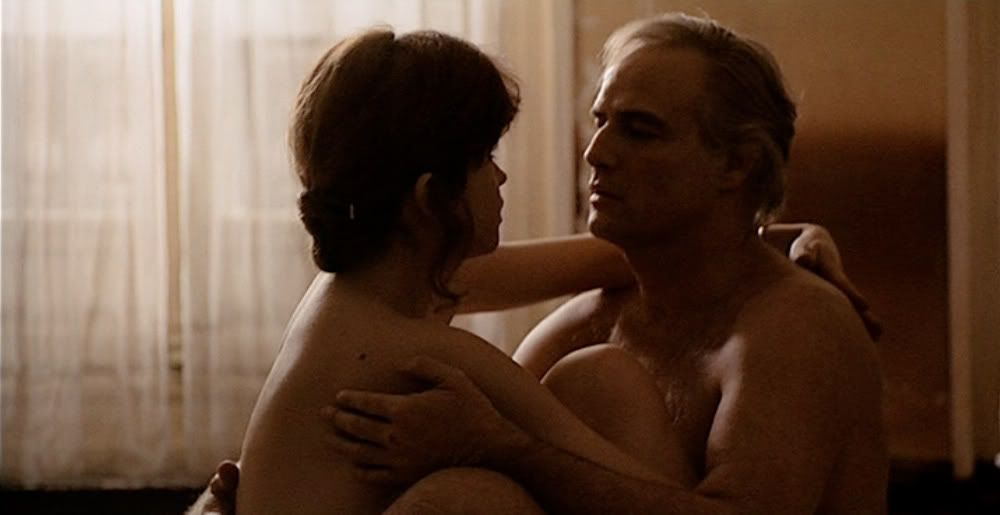
The latest edition of The Conversations has now been posted at The House Next Door. In this piece, Jason Bellamy and I discuss Bernardo Bertolucci's controversial X-rated Last Tango in Paris, and unsurprisingly we have a lot to say. We talk about acting and realism, the stars Marlon Brando and Maria Schneider (who, sadly, recently passed away), the influence of the French New Wave on Bertolucci, the responses of Pauline Kael and Norman Mailer to the film, and, oh yeah, the sex scenes. It's another wide-ranging discussion of a film we suspect will prompt a lot of discussion and debate, so go get the butter, check out our conversation, and then weigh in at the House's comment section.

2 comments:
Good work guys. I was at the screening that Pauline attended at the New York Film Festival. Never agreed with her rapturous response, but it was clear the film impressed everyone who was there. Sexual coupling on the screen hadn't been presented that way before in a film aimed at "mainstream" audiences, Likewise it's depiction of sex without love.
Ingmar Begman took great exception to Last Tango, declaring that the film bertolucci "really" wanted to make was about Brando having sex with a boy — but both lost their nerve at the last minute. Considering the rather marked bisexual undercurrents of Bertolucci's art I can see what Bergman means up to a point. But Bertolucci was very insistent (at least to me) that the whole dynamic of the film sprang from the conflicting styles of Brando and Maria Schneider. "She's MY discovery — MINE!" he declared triumphantly. What you've said about them here backs this up.
Neither Brando nor Schneider were conventional actors. He was a Big Star who turned his personal quirks into a style that others have tried to copy, mistaking it for "realism." Brando was nothing if not a baroque precursor of Warhol's superstars, particularly Ondine, whose tirades in The Chelsea Girls are clearly Bertolucci's model for Brando. Maria Schneider of course came to work alongside Warhol discovery Joe Dallesnadro for — of all people — Jacques Rivette. Both were always playing themselves.
Mailer regretted that Brando and Schneider didn't actually do the deed. It's a shame he didn't live to see Patrice Chereau's Intimacy in which Mark Rylance and Kerry Foxx actually DO have sex on screen in a story (by Hanif Kureishi) that mirrors Last Tango in many ways — save for its finale which isn't melodramatic. As for sexual shock tactics they can be found in Chereau's L'Homme Blesse and his masterpiece Those Who Love Me Can Take the Train. Chereau is unapoogetically gay so technically he might have won Bergman's approval. But at heart Bergman was mean and spiteful old cuss, jealous of everyone else's success.
I am definitely most interested in this latest installment of The Conversations, and plan to read it later today. I just want to comment now on David Ehrenstein's submission. Kael has always made the startling 'revelation,' and once opined that FIDDLER ON THE ROOF is the 'most powerful' movie musical ever made, an opinion (unlike the one on TANGO) that I feel is nearly on the mark.
Berman is one of my favorite directors ever, but I quite agree with David that he was as mean-spirited and envious as they come. He liked nearly nobody and his preposterous dismissal of Fellini and the Italian neo-realists (the tip of the iceberg with him though) show him as narrow in taste.
Like Wagner, he's one of the true artistic enigmas: unlikeable as a human being, but a staggering genius. Go figure.
Anyway, don't mean to take attention away from what surely is another revelatory CONVERSATIONS post. Every one is a treasure, and I'm sure this will be no different.
Post a Comment